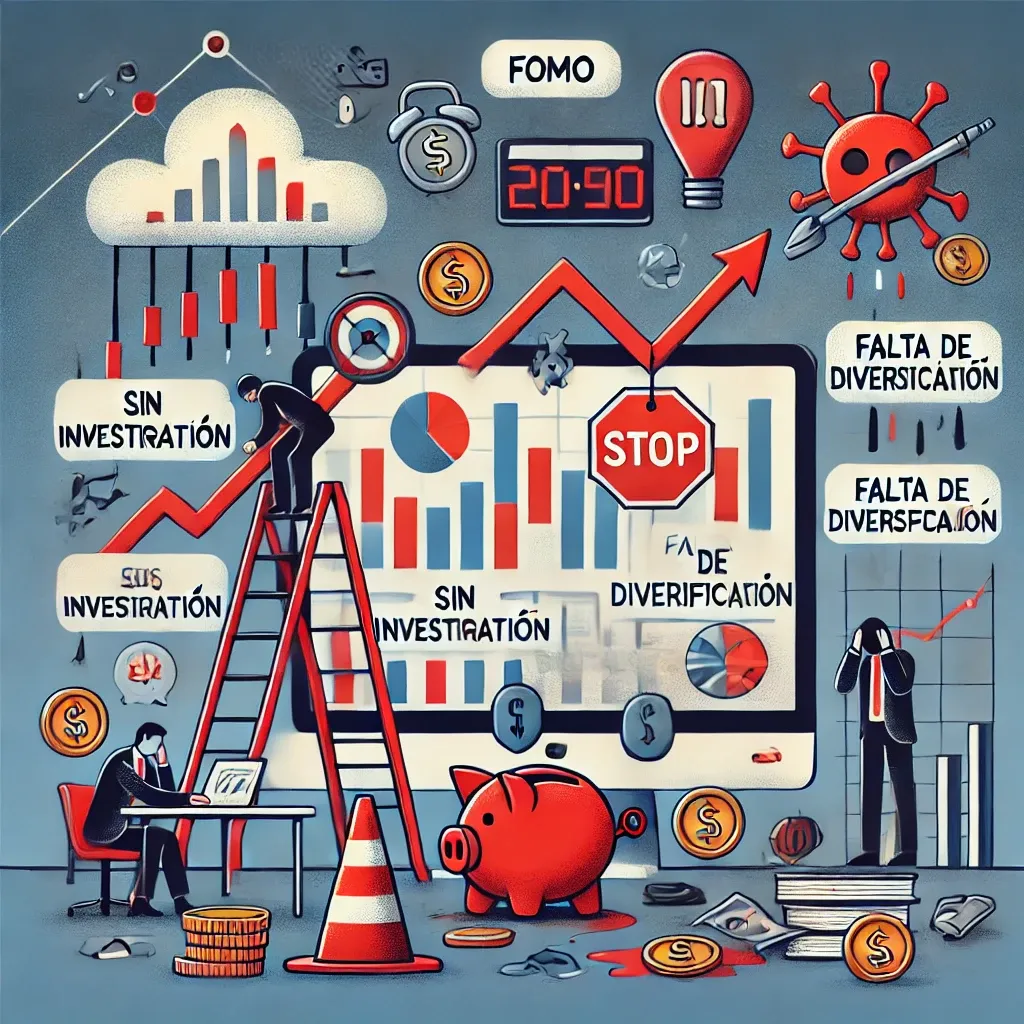Investing in cryptocurrencies can be exciting, but it's also filled with risks. Many people are drawn to the success stories of those who've made significant profits, but they don't realize that the journey can be full of mistakes that, if not avoided, can lead to substantial losses. In this article, we’ll explore the most common mistakes new cryptocurrency investors make and how you can avoid them.
1. Not Understanding What They’re Investing In
One of the biggest mistakes new investors make is jumping into the world of cryptocurrencies without truly understanding how they work. Cryptocurrencies are not like traditional stocks or bonds. They have a very different technology and market, and each cryptocurrency project can have its own purpose and value.
What Is a Cryptocurrency?
At its core, a cryptocurrency is a digital asset that uses cryptography to secure transactions. These currencies operate on decentralized networks, most often based on blockchain technology. While all cryptocurrencies share some characteristics, they are not all the same. Bitcoin, for example, is mainly viewed as a store of value, while Ethereum focuses on smart contracts.
Before investing, make sure you understand what problem the cryptocurrency you’re interested in is solving. Is it a smart contract platform? Is it a stablecoin designed to avoid volatility? Without understanding the purpose of the cryptocurrency, you’re investing blindly.
2. Not Having a Clear Investment Strategy
Many new investors make the mistake of entering the market without a defined plan. It can be tempting to follow the market "noise," where cryptocurrencies are rapidly rising, but without a clear strategy, it’s easy to lose money.
What Is a Cryptocurrency Investment Strategy?
A cryptocurrency investment strategy should include the following:
- Short-term and long-term goals: Are you investing to hold long-term, or are you looking for quick profits?
- Risk tolerance: Cryptocurrencies are extremely volatile. How much are you willing to lose?
- Diversification: Don’t put all your money into one cryptocurrency. Diversification can protect you from significant losses.
3. FOMO (Fear of Missing Out)
FOMO, or the fear of missing out, is one of the most common mistakes among new investors. When a cryptocurrency is rising quickly, and the media starts talking about it, it’s easy to feel like you’re missing out on a big opportunity if you don’t invest immediately.
How to Avoid FOMO?
It’s important to remember that cryptocurrency markets are volatile, and what rises quickly can fall just as fast. Instead of getting caught up in the excitement of the moment, make decisions based on solid research. Don’t buy just because others are doing so.
4. Not Managing Risk Properly
Risk management is crucial in any type of investment, but it’s especially critical in the world of cryptocurrencies. Many new investors make the mistake of investing more money than they are willing to lose.
How to Manage Risk?
- Invest only what you’re willing to lose: Cryptocurrencies can generate large gains, but also large losses.
- Use stop-loss orders: These orders automatically sell your assets when they reach a predetermined price, helping you limit losses. Here you can learn more about asset analysis for beginners.
- Diversify your portfolio: Don’t put all your money into a single cryptocurrency or type of investment.
5. Not Storing Cryptocurrencies Securely
Security is a crucial aspect that many new investors overlook. If you don’t store your cryptocurrencies securely, you could become a victim of hackers or scammers.
Cryptocurrency Storage: Hot vs. Cold Wallets
- Hot wallets: These are wallets connected to the internet, like those offered by exchanges. They are convenient but more vulnerable to attacks.
- Cold wallets: These are offline wallets, such as hardware wallets, which are much more secure but less convenient for quick transactions.
6. Ignoring the Tax Implications
Many new cryptocurrency investors don’t consider the tax impact of their investments. In many countries, cryptocurrencies are subject to taxes, and not accounting for this can lead to problems with tax authorities.
How to Handle Cryptocurrency Taxes?
It’s important to keep a detailed record of all your cryptocurrency transactions. Many exchanges offer tax reports that you can use for your filings. Failing to correctly report your gains and losses can result in significant penalties.
7. Relying Solely on Centralized Exchanges
Many new investors make the mistake of relying entirely on centralized exchanges for buying, selling, and storing cryptocurrencies. While these exchanges are convenient, they have been hacked in the past, and trusting them completely is a risk.
Alternatives to Centralized Exchanges
In addition to using exchanges, consider the possibility of using decentralized exchanges (DEX) and, as mentioned earlier, cold wallets for securely storing your cryptocurrencies.
8. Not Staying Informed About the Market
The cryptocurrency market changes rapidly, and not staying up to date with news and developments can lead to poor investment decisions.
How to Stay Informed?
- Follow trusted sources: There are many websites and podcasts about cryptocurrencies that offer valuable information.
- Continue learning: The world of cryptocurrencies is constantly evolving. What worked yesterday may not work today.
Conclusion
Investing in cryptocurrencies can be a rewarding experience, but it’s also full of pitfalls for new investors. By avoiding common mistakes, such as failing to research, succumbing to FOMO, or not managing risk, you can increase your chances of success in this exciting but volatile market.
Remember, cryptocurrencies are a complex and constantly evolving world. The key is to learn, stay informed, and always act with caution.
